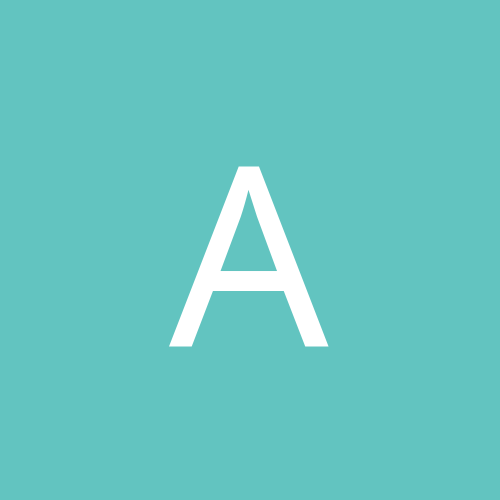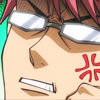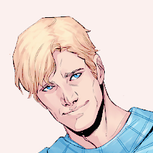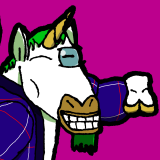I'm working on a game. I'm at the point where I have a story, characters, environment. But how do you pull it all all together? My logic of the game is things im putting together that works. That goes together, but what am I missing. I know the why I want to make this but how do I get it to work. Another thing is I cant start on an indie game. I need to start on the game I feel passionate about. It's stuck in my thoughts, my mind. So im guess im asking is how does it begin and where does it end?
where did you start to make a game?
where to start. You ever feel like you have all the tools to build something, you just don't have the instructions pad with you? That's where I'm at. I'm stuck between all this knowledge I have to build a game. The story, plot weapons armor activities of what you can do in the game. But the only part I'm missing the tech part. Honestly I want to learn to a certain point but I don't want to spend my life learning code. I just want to make games. So I'm hear to learn
If you are at this point, I would suggest dialing back things quite a bit. I believe somebody referred to this as Teenage Game Tycoon syndrome (TGT for short). If you are just starting out in game development, you need to start small, painfully small. Try making something like pong, or a text based adventure game, then work your way up to your dream game.
Learning how to put games together is best learned from experience.
View my game dev blog here!
It is a very common barrier not only in developing a game, actually in everything in life just as writing a song, drawing, doing the managerial job etc.
You have to be aware that nothing starts from the finished product, BUT you have to have an idea of how you want it to be, but not precisely, just abstract, big picture.
I suggest you think in components, divide problems into smaller problems, code components in blocks, then learn to put them together.
First, don't think about the perfection, you have to release the working prototype first, with the event flow you want, you don't have to release the full game on your first try, no one has ever done it. ![]()
Prototype > when you're happy add more components. Working toward your early alpha release, where a few broken squares interact with the triangles and something happens is a happy result of a bigger idea
Your primary skill is going be programming, so don't leap into this games development thing without being familiar with at least one language. Even using Unity, you won't get far without some programming knowledge.
Make Columns, Space Invaders, Asteroids - all simple games - before you attempt anything "big" that involves "a cast of thousands"...
Start small. I mean, start very small.
I remember myself starting at a very small game, it was a maze running game. The game rule is simple, the player is in a maze, he needs to go to the destination within 5 minutes. I think this is a good start for beginner as it involve with a very few concepts.
I don't think something this small will be your passionate. However, if you can't do something this small, you can't do something bigger. Anyway this kind of game should only takes an evening to implement (if you're using game engine, it will be much shorter. I was doing everything on my own at that time however.), why don't you give it a try :).
http://9tawan.net/en/
Step 1, Learn to program. If you think you've learned things sufficiently take a stab at the below suggestions. If you're finding you don't know how to work out what's needed to complete them then continue to build on your programming knowledge.
- Get a sprite up on the screen.
- Learn to move it around with the keyboard or mouse (ideally learn both).
- Get more than one sprite on the screen.
- Move each sprite independently from the other somehow.
- Figure out how to test for collisions and do something when they occur.
- Figure out how to animate your sprites.
Hopefully by the time you've worked out how to do the above you'll have an idea of what you need and how to go about perusing your project further.
Be prepared for a very long process. Like, lifelong. Working with assets and IP that you have already created at this point may help inspire you to push on but understand that what you want to do, what you think you should be able to do, and what you can do are all different things.
It's a very long and taxing process. Started learning Programming from a peer. I only intend to do designs but I did enroll myself in some Udemy courses by recommendation and also did a lot of readings, research, and practice like a mental parkour. You have to know the right people to help you further your knowledge and skills.
On Hiatus this month. Will be taking a brief vacation from work. Got my F-150 working again so I bought a few items including fuel wheels to use for the road trip.
For now, dream smaller. My own ultimate dream game is way beyond my scope, so it's very decidedly sitting on an backburner. I've drawn up several, more focused ideas since then, and my starting project is focused on doing 1 thing (and is only mildly beyond my scope).
If you want your dream game made, you're going to need extra hands on it, so until then, drum up a small idea that interests you.
Is currently working on a rpg/roguelike
Dungeons Under Gannar
Devblog
It's a good job done sorting these different aspects into categories. Now the coding part, you would want to modulize the structure of your game into different building blocks. Don't implement the concept just yet, work on the overall flow of the prototype now. Leave what you have done aside.
If you have an engine already, program your environment in such way so you can easily implement layers of other aspects. Define the boundaries first in which you will work. Expand later, now you have to deal with the working prototype. Environment < workflow < character module | quest/story module | other modules < only then start thinking about the story, characters and other micro things.










